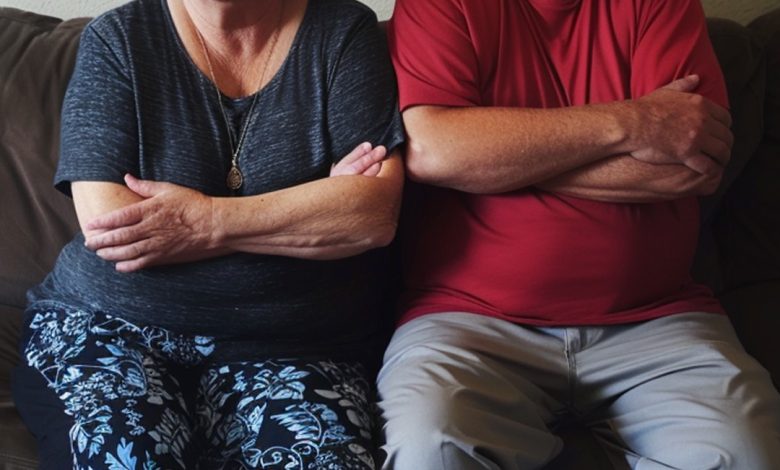
My Parents Stole My College Money for My Brothers Wedding, Their House, and Business, but They Messed with the Wrong Person
When I discovered that my parents had emptied my college fund to finance my brother’s extravagant wedding, their home renovation, and various business expenses, I was utterly devastated. They hadn’t just stolen my future—they had also triggered a legal clause that my great-aunt Martha had ingeniously hidden in her will.
Family is supposed to mean unconditional love and support, but I learned the hard way that sometimes standing up for yourself is the only way to gain respect—even from those who were meant to protect you. Growing up, I had always admired my great-aunt Martha, the one person in our family who broke tradition. Unlike the others who followed the expected path of wives and mothers, she pursued an education and became a doctor. Living first in London, then marrying a British man, and eventually establishing a successful life in America, she was a beacon of progress in our otherwise conventional family.
During one of our rare visits, she looked at me with kind, knowing eyes and said, “You remind me of myself—so curious, so hungry for knowledge. Never let anyone take that away from you.” Her words left an indelible mark on me, especially as our culture often dismissed education for women. While my mother would remind me that a woman’s place was at home, Martha argued that an educated woman has choices, and choices are freedom. Determined to ensure that future generations would not be limited by such narrow expectations, she set up savings accounts for all her female relatives, earmarking nearly $75,000 for my education. On her last visit, she pressed the account into my hands, saying, “No one can touch this but you. I want you to make something of yourself.” I hugged her tightly, tears streaming down my face as I promised to make her proud.
After her passing, I clung to the hope that her gift would secure my future. While my peers fretted over scholarships and financial aid, I was able to dream bigger, bolstered by the cushion she had provided. But when I visited the bank to withdraw funds for my first semester, I was met with a shocking discovery: my account balance was only $13,000. I knew for certain there had been far more money than that. Confused, I confronted the bank teller, who explained that multiple withdrawals had been made over the past two years, all authorized with a valid signature. My signature. But I had never signed any such documents.
Heart pounding, I returned home and demanded answers from my parents. “Where is all the money Aunt Martha left for me? Who withdrew it and why?” I asked. My mother waved her hand dismissively, claiming, “We needed it.” My father chimed in with a heavy sigh, “Your brother’s wedding, the house, and some went into the business. You should be thankful you even got something.” I could hardly speak as their casual dismissal of my future stung deeply. My mother continued, sweetly yet condescendingly, “You were always so smart, you’ll figure something out.” But the words rang hollow when I reminded them, “This money was meant for my education. How did you even get access to it?”
My parents’ response was shocking. My father snapped, “It was for family. What kind of selfish daughter puts her own needs above your brother’s? He needed stability—a home and a beautiful wedding.” My brother, James, laughed as he joined the conversation, ridiculing my dreams and boasting about his own achievements, his smirk saying it all: he had done something ‘useful’ with the money, while I was left with debt and shattered dreams. I felt a surge of anger and disbelief—how could they justify spending my future on their own desires?
Determined to reclaim what was rightfully mine, I demanded transparency. “Show me every withdrawal, every expense.” But my father slammed his hand on the table, cutting me off, and declared, “This conversation is over.” In that moment, I realized I had to break free. I took out student loans, moved out, and never looked back. As I left, my mother’s anguished cries followed me—accusing me of repaying them ingratitude—but I knew deep down that I had simply refused to be exploited.
After my departure, my parents and James spun a tale casting me as the ungrateful villain who had abandoned family over some trivial college money. Their stories painted me as selfish and greedy, but I had my own truth. Then, while sorting through Aunt Martha’s personal effects—a collection of photos and letters I had carefully stored away—I stumbled upon an envelope labeled “My Will.” Inside, I found a clause that turned everything upside down. Martha had clearly foreseen the possibility of her education fund being misused. Her will stated that if the funds were used by anyone other than the intended recipient, the money had to be repaid in full, with legal action ensuing if not honored.
Realizing that my parents and brother had not only betrayed my trust but had also put themselves in legal jeopardy, I immediately sought legal counsel. A few days later, I returned to my parents’ home accompanied by my lawyer. Placing the will on the table, I calmly said, “You stole my college fund, but it appears you didn’t read the will to the end.” My father’s face went pale as he skimmed the document, his expression morphing from arrogance to sheer disbelief. When my lawyer explained that I could file a case against them, even my brother’s mocking attempt to bargain—offering to pay for my university if I dropped the matter—fell flat. I made it clear: either they repaid the full amount, or I would proceed with litigation.
That was the final straw. I severed ties with my family, and they are now scrambling to repay me before the case goes to court. Looking back, I realize that being family does not mean allowing others to trample over your future. If my parents had simply asked for help, explained their situation honestly, and respected my autonomy, perhaps things would have been different. Instead, they chose deception and betrayal, valuing a fleeting celebration over my lifelong aspirations.
The hardest lesson I have learned is that standing up for yourself is not an act of selfishness—it is an assertion of your worth. Sometimes the people who should love you the most are the ones who need the strictest boundaries. Aunt Martha understood that, and now, so do I.



